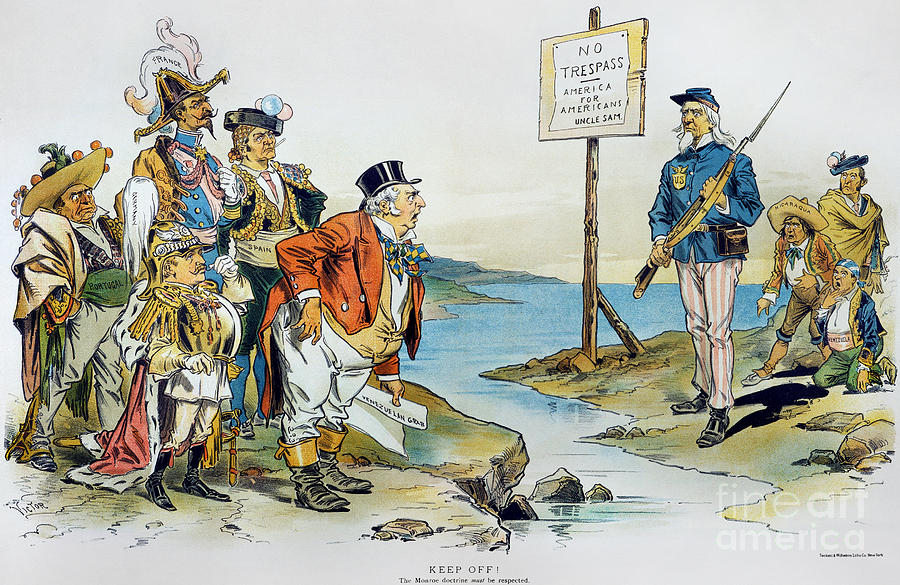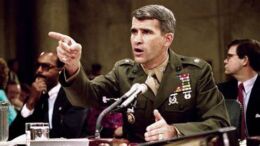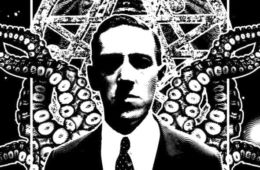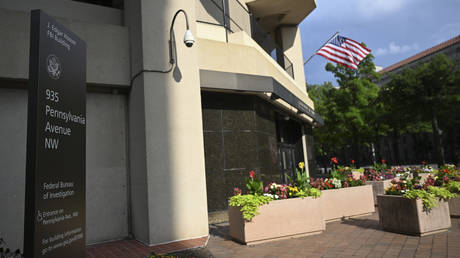On the Border of Right and Wrong: The Iran-Contra Affair, Part 2
3,102 words
Part 2 of 2 (Part 1 here)
Iran and the Contras
Ronald Reagan cruised to reelection in 1984 on a good economy and his sunny disposition. His National Security Advisor was Robert McFarlane, who had graduated from the US Naval Academy in 1959 and served in Vietnam as an artilleryman in the US Marine Corps. McFarlane’s deputy was Vice Admiral John Poindexter of the class of 1958. Poindexter hadn’t served on the ground in Vietnam, but rather aboard destroyers and worked on various scientific projects. Lieutenant Colonel Oliver North (‘68), for his part, served as an infantry platoon commander in Vietnam and was decorated for valor. He was on McFarlane and Poindexter’s staff at the National Security Council.
Reagan’s political star had risen in California because he had opposed radical Leftist activism, especially in places such as Berkeley. In the 1960s, Leftist protests, most of which were focused on the Vietnam War, were often led by ethnic Jews whose parents had been sympathetic to the Bolsheviks. Not content to only protest American foreign policy, these protesters soon began engaging in attacks on military men, frequently blue-collar American whites and their upper- and middle-class Anglo-American officers — such as McFarlane, Poindexter, and North. Thus, there was a definite ethnic angle to the anti-war movement of the 1960s.
By the disastrous end of the Vietnam War, the sacrifice of those military men was widely disparaged in American society. Reagan’s victory turned that situation around, however. During his 1980 campaign, Reagan referred to the Vietnam War as a “noble cause.” President Carter’s campaign team scoffed at the remarks, but they were badly misreading the situation. Reporter Robert Timberg, who was also a Vietnam veteran, wrote of this:
The “noble cause” speech was part of the song that attracted McFarlane, North and Poindexter to Reagan. Not that he or the three Naval Academy men who would soon be working for him did not know by then that incompetence, cynicism, and double-dealing had gone into America’s failed commitment to South Vietnam. What Reagan was saying, and more important, what McFarlane, North, Poindexter, and men like them were hearing, was that when they or their fellow soldiers headed off to war they did so believing that the cause was just, indeed, in its way noble.[1]
The situation in Central America was taking place in an entirely different political universe from that in Iran. What ended up connecting Iran with the Contras was the fate of seven American hostages who had been captured by Iran-backed Islamist militants in Lebanon between 1982 and 1984, as well as the Boland Amendment. Reagan wanted the hostages freed and the Contras to be supplied.
At the time when McFarlane, Poindexter, and North attended the Naval Academy, an important moral point was conveyed to all midshipmen via a story, “A Message to Garcia.” It is about a subaltern serving in the Spanish–American War who is ordered to deliver a message to a Cuban named Garcia. How the mission is to be accomplished is left vague, and the message of the story is that the subaltern needed to take the initiative to figure out how to get the message delivered. The story concludes by saying,
My heart goes out to the man who does his work when the “boss” is away, as well as when he is home. And the man who, when given a letter for Garcia, quietly takes the missive, without asking any idiotic questions, and with no lurking intention of chucking it into the nearest sewer, or of doing aught else but deliver it, never gets “laid off,” nor has to go on strike for higher wages. Civilization is one long anxious search for just such individuals. Anything such a man asks will be granted; his kind is so rare that no employer can afford to let him go. He is wanted in every city, town, and village — in every office, shop, store and factory. The world cries out for such; he is needed, and needed badly — the man who can carry a message to Garcia.
With the Boland Amendment in force, McFarlane made use of his initiative to develop alternate ways of keeping the Contras supplied. One was to receive funds from the Saudi Arabian government with the unspoken assumption that Reagan would repay the favor in some other way. McFarlane also acquired money from wealthy private donors. There is a conspiracy theory which claims that the Contras were funded with the profits of drug smugglers who were selling crack cocaine in sub-Saharan neighborhoods in the US. There is little evidence for this, but if it indeed happened, the “private donors” funding the Contras at this time could have been involved in cocaine distribution.

You can buy Greg Johnson’s Against Imperialism here.
On June 17, 1985, McFarlane raised the idea in a cabinet meeting that the US could sell arms to Iran in exchange for the hostages. Secretary of State George Schultz and Secretary of Defense Casper Weinberger dismissed the idea, however. Several weeks later, a former Israeli intelligence agent named David Kimche claimed that there were “moderates” in the Iranian government with whom the US government could deal, so McFarlane raised the idea again. Schultz and Weinberger dismissed it a second time, but McFarlane later claimed that Reagan called him afterwards and personally gave him the go-ahead to proceed.
While all this was happening, another crisis emerged in the background. Trans World Airlines Flight 847 was hijacked after taking off from Athens on June 14, 1985 by a group allegedly aligned with the then-emerging Iranian-backed Hezbollah organization. The hijackers murdered a US Navy sailor, separated the passengers with Jewish-sounding names from the rest, and forced the pilots to fly to various airports around the Mediterranean, releasing some of the hostages when their new list of demands at each stop were met. The last hostages would not be released until June 30.
On July 13, Reagan had colorectal surgery to remove cancerous tumors. The controversy over what the President did or did not know about Iran-Contra starts there. There is no clear record of Reagan authorizing the particulars of the arms-for-hostages deal, although it is known that McFarlane met with the President while he was in the hospital. McFarlane later claimed that he had fully briefed Reagan on the operation, although Reagan claimed that he didn’t remember the meeting, which was plausible given the fact that he was on painkillers at the time. As the operation progressed, Reagan’s staff didn’t cooperate, and the President himself signed questionable documents related to the affair without reading them.
The go-between for the deal was an Iranian arms dealer, Manucher Ghorbanifar. He received TOW anti-tank missiles and Hawk anti-aircraft missiles on behalf of Iran. The weapons were sold to the Iranians at a 600% markup. The weapons were either sourced from Israel or transferred from the US Army to the CIA. Lieutenant Colonel Oliver North handled the details on the US side of things. He set up several Swiss bank accounts to handle the money and coordinated with the CIA to move the weapons. McFarlane had a falling out with Reagan’s Chief of Staff, Donald Regan, and resigned from the National Security Council in early December 1985. He was replaced by Poindexter but remained on Reagan’s staff as a troubleshooter.
The Iranians got the weapons, but only released some of the hostages. Nevertheless, their payments for the arms went to the Swiss bank accounts set up by North. North then hit upon the idea that this could be transferred to the Contras, thus circumventing the Boland Amendment. In May of 1986, McFarlane and North sought to expand the operation by attempting a back-channel negotiation with the moderates that were supposedly in the Iranian government with the intention of opening a more lasting diplomatic dialogue. To this end they went to Tehran, but they were only met by the Republican Guard the first time and minor officials the second. No breakthrough was achieved. The mission was a failure; there were no Iranian moderates.
The story of the affair became public knowledge as the result of two events. The first was when a CIA plane carrying supplies to the Contras was shot down over Nicaragua on November 5, 1986. One of the American crewmen aboard managed to parachute out of the aircraft to safety, but was then captured and confessed the CIA’s role in the operation in a Nicaraguan press conference. Then, an Iranian official who opposed the deal leaked details of the affair to a Lebanese magazine. It is possible that Admiral “Art” Moreau helped arrange the leak, as Moreau was part of one of Vice President Bush’s military advisory teams which worked semi-independently from the rest of the administration; Moreau may have opposed the operation and thus wanted to bring it to an end. Moreau died on December 8, 1986 of a sudden heart attack, however, so his side of the story was never told.
All US government activities were recorded on paper until the early 2000s, and many government forms were printed using three layers of carbon paper. North and his secretary, Fawn Hall, then a very beautiful young woman, began shredding documents when word of their activities got out and it became clear an investigation would follow. Shredding machines at the time only cut papers into strips, however, and many of the documents were reassembled and read by investigators. North and Poindexter had also had an early form of e-mail called PROFS. The two deleted the e-mails from their computers, but they were not deleted from the server, and investigators discovered them as well.
The question naturally arises: How did a mid-level military officer have so much freedom to carry out a plan that involved high-level international intrigue? This is in fact the way in which most US government operations work. A classified project usually has a large number of flag officers or other senior officials “read on” to the project, but the operational details are left to a mid-grade official, whether military or civilian. Big military operations are actually planned by Majors, for example. These mid-level officers are expected to act on their own initiative. Senior officials, such as Admiral Moreau, are kept in the loop to provide support. Should, for example, the National Security Advisor need to call the Chief of Naval operations to ensure that a certain truck will make it to a certain base with no questions asked because it is part of Operation X, the appropriate orders can then be given to the Military Police detachment at the appropriate place and time.
The Democrats won control of the Senate in the 1986 mid-term elections. The Iran-Contra Affair had all the makings of a second Watergate. Ronald Reagan, who had until then be seen as a very successful Presidency, was suddenly n grave danger of an impeachment.
Reagan and the Democrats
Reagan governed at a time when the Democratic Party still had a large contingent of Irish Catholic and Southern voters. He did not inspire the same level of hatred as Richard Nixon had. In fact, Reagan governed with support from many conservative Democrats, who were called Reagan Democrats or Boll Weevil Democrats. One such was Congressman Larry McDonald of Georgia. He was an anti-Communist Democrat who was killed when a Soviet fighter plane mistakenly shot down a Korean airliner that he was aboard. There were suspicions that the Soviets had deliberately attacked the plane because McDonald was aboard.
The resulting Congressional hearings on Iran-Contra were televised live. Oliver North initially invoked his right not to testify on the grounds that he would incriminate himself, but finally did break his silence. He looked sharp at the hearings and insisted that he had been following orders and would continue to follow orders, and that the cause of supporting the Contras was just. In the end, North and many other officials were convicted of perjury or other matters. They were given fines, probation, and community service. Most were pardoned once VP Bush became President. It is quite likely that Reagan was telling the truth when he said that he didn’t know about the affair, and that he couldn’t remember what little he had known. By the end of his presidency, his cognitive abilities had declined due to the onset of Alzheimer’s as well as the aftereffects of the anesthesia that had been administered during his two surgeries. He gave a televised mea culpa speech to wash his hands of the affair.

You can buy Tito Perdue’s novel The New Austerities here.
Reagan, of necessity, fired Oliver North, but North remained a hero for many. Vietnam veterans across the country rallied to his defense. To them, he represented the nobility of their fight in an ill-favored war. North became a television star and went on to host his own programs.
Chief of Staff Donald Regan was also fired due to his inability to control the White House staff. He had been one of the most powerful men in Washington, but after he was sacked, nobody even bothered to help him clean out his office. He left the White House carrying his effects in a box.
While the Iran-Contra Affair was a heavily partisan issue among elected officials, the rest of America watched the proceedings with indifference. Apart from a few farsighted people, old-stock Americans didn’t change their views on Israel or ask hard questions about what America was doing in the Middle East that was causing so much animosity.
Muh Constitution
The Iran-Contra Affair is commonly called a constitutional crisis, but the Constitution was deliberately set up to lead to these sorts of events as a result of the separation of powers. Nonetheless, it is very likely that Lawrence Walsh, the Special Prosecutor who investigated Iran-Contra, was on to something. The Reagan administration probably did break the letter of the law, although Reagan himself was unaware of the details. The legal question boiled down to whether it had been legal to send the profits from the arms sale abroad or not.
The Iran-Contra Affair was enormously partisan. Those who focused on the affair’s constitutionality were often liberals and Democrats. The resulting clash was the intersection of two irreconcilable but completely correct policy choices. On the one hand, it is absolutely true that American involvement in far-off places often leads to undesirable outcomes. Jungle rebellions have a way of drawing Americans into a pool of quicksand. On the other hand, isolationism was impossible for America during the Cold War, and the US cannot afford to ignore the rest of the Americas at any time.
At the time of writing, Venezuela, which is in the hands of a Leftist regime, is seeking to annex parts of neighboring Guyana. With the Russo-Ukrainian War in the background, it is entirely possible that Russian diplomats encouraged this situation in an attempt to prevent the United States from being able to put its full attention on Ukraine. Thus, the old game is still going on.

The Monroe Doctrine, first articulated in 1823, holds that it is in the US’ vital interests to keep Old World governments from colonizing or influencing the rest of the Americas. It is still applicable.
Additionally, it only became clear in retrospect that the Soviet Union was collapsing in the 1980s. The USSR looked formidable until the moment the Berlin Wall came down in November 1989. Not a single Kremlinologist saw it coming. Thus, from the perspective of the time, sending aid to the Contras was the lesser of two evils. Reagan was in the moral right. He had only erred when he failed to veto the Boland Amendment. Later, Nicaragua’s Communist government was overturned in an election which would not have taken place had the Contra rebellion not occurred.
The hostages taken by Iran were genuine American citizens. They included old-stock American educators, clergy, and businessmen. They were not dual-citizen “Americans” on paper living on a kibbutz and then hiding behind their US passports when it became convenient to do so. Thus, the initiative shown by McFarlane, Poindexter, and North in attempting to free the hostages is to be commended.
Although it is indeed possible that the Iranians could have used the weapons they received through the deal against the United States, they were already equipped with American arms. Iranian foot soldiers went to war against Iraq carrying American-made M1 Garand rifles, the Iranian air force dropped American-made bombs from American-made F-4s, and Iranian artillerymen fired American-made howitzers. The weapons sold to them by North were so few that they were most likely used up in the fierce Iran-Iraq War within a matter of months. This is beside the point that governments only conduct prisoner exchanges with their enemies to begin with.
There is a neoconservative angle to the Iran-Contra Affair, however. The Jew Elliott Abrams, who had served as an Assistant Secretary of State in the Reagan administration, pleaded guilty to “withholding information to Congress” in relation to Iran-Contra in 1991. He had been heavily involved in events in Central America in the 1980s. The anti-Communist neoconservative Jews nevertheless played a pivotal role in ending Communism there. Neoconservatives thus genuinely earned accolades for their anti-Communist activities — but their support came with a price. Neoconservative Jews were motivated to become anti-Communists as a result of the anti-Russian animus that is common among Jews. Otherwise, they typically became Trotskyists who supported every Left-wing domestic agenda item, including the Great Replacement. The Neoconservatives soon went on to push for the Iraq War, which was fought only for Israel.
The Israeli government had played a role in the Iran-Contra Affair by providing some of the arms given to Iran. This was probably a simple way for them to keep their hooks in the US government. They had no desire for a US-Iran rapprochement. Israeli officials had lied to the Americans about there being “moderates” in the Iranian government.
White advocates should be aware of the complexities of the Iran-Contra Affair. When we take power, there will be tremendous resistance from the organized Jewish community as well as misguided wealthy white liberals. Complicated problems will continue to manifest and innovative solutions will be required to solve them. White advocates must do the solving. They must be able to deliver the message to Garcia.
Ultimately, the Iran-Contra Affair took place in the shadowlands between right and wrong, legal and illegal. Understanding how to navigate such a path in darkness is vital.
Bibliography
William R. Meara, Contra Cross: Insurgency and Tyranny in Central America, 1979-1989 (Middletown, Del.: HBR Press, 2010).
Samuel Segev, The Iranian Triangle: The Untold Story of Israel’s Role in the Iran-Contra Affair (New York: The Free Press, 1988).
Robert Timberg, The Nightingale’s Song (New York: Touchstone, 1995).
Lawrence E. Walsh, Iran-Contra: The Final Report (New York: Times Books, 1994).
Note
[1] Robert Timberg, The Nightingale’s Song (New York, Touchstone, 1995), p. 16.





